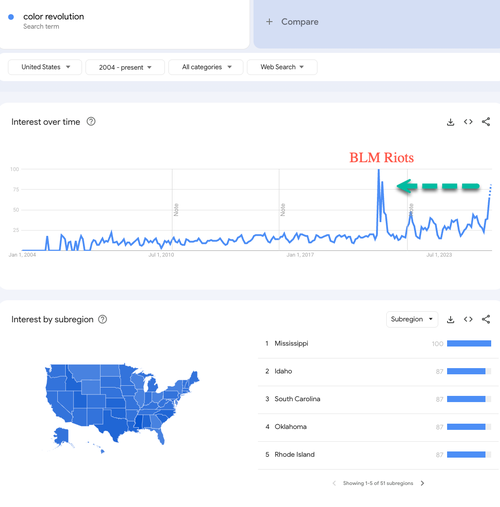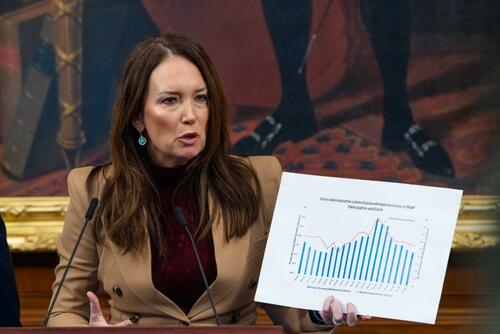(0:00 - 1:58)
Many financial advisors will recommend full or universal life insurance policies as these build equity over time. However, while this may be good advice for the wealthy and high-income earners, it may not be the best path for the common person who is often, especially in today's society, struggling just to get by every month. Oliver Ross of Liberty Lives, who has been a guest on my show in the past with a series on protecting your privacy, joins me today to discuss the ins and outs of life insurance.
There is no one-size-fits-all solution, and understanding the pros and cons of whole life versus term may not only help you to make a better decision on which option will best protect your family in the event of your untimely death, but even be a strategy for freeing up money for savings and investments. As Oliver points out, the goal with any form of life insurance is to reach in life a level of wealth where you no longer need insurance. Oliver, welcome back to the show.
Thank you for having me back. It's been quite some time since we last spoke when we did a privacy series a couple of years ago, and then you were very kind to send me an email last week talking about basic financial knowledge really, because I do and my viewers know that I do do a quarterly update with a team of financial experts, but truthfully a lot of what they talk about is for higher end, high net worth investors. What we're going to talk about today is for the everyday person to help them to understand these financial concepts so that they can build a better future for themselves.
And it starts with something what you call a FIN number. Would you please explain what that is? Yeah, so a FIN number stands for a financial independence number. Every single person, no matter your age, no matter what you've been doing, has a financial independence number.
(1:59 - 2:44)
So what it really comes down to is you're planning for retirement, right? You're working every single minute of every day to try and have enough money so that you can do something, or whatever. It doesn't have to necessarily be retirement, but what you're never told, and what you're never given advice on is what number you're trying to get to. And everybody has that.
So if there's, whatever your situation is, if it's dealing with, if you have CPP or whatever coming in, there's still a number that you need to achieve to be able to hit your goal and be able to retire or do what you want in the way you want so that you're no longer concerned monetarily. Right. And now you've broken that down into basically sort of three steps.
(2:44 - 2:56)
You've got the basic level, then the medium-term planning, and then the long-term planning. So let's talk about that. Especially, I think, let's talk about the short-term planning, because that's where a lot of people get themselves into trouble.
(2:57 - 7:27)
Exactly. People don't have emergency funds ready, and they're thinking about, oh, I'm going to put my money in whatever asset. It doesn't even matter.
It's important that you know where your money's going, but some people say everything has to be in gold. I'm not of that philosophy. Some people give you different advice, but the point is we're planning for different time periods.
So in the short term, that's really when it comes to emergency funds. You never know what's going to happen in your life, or maybe it's your spouse or your children's lives. And if you're strapped for cash for whatever, medical or something like that, then it's going to be very difficult to actually deal with that situation well.
And at that point, if you don't have the money set aside or you haven't planned to keep this money in a certain way so that it's very low risk and that you always have it and access to it in a meaningful way, then, like I said, you could be in a situation where you're going to need money and you're not going to have it. And that really is when people get the most concerned. And if you're dealing with some emergencies, people always encounter things where they are not quite there with what they need.
And it's important that as part of a holistic plan, you're covering that short term period on top of the other components. When we have the medium term, we're talking more along the lines of purchasing a home, moving. Potentially we're talking about student stuff, RESPs, things like that.
And those can be a little bit more risky in the way they're structured so that you're able to capture more growth. But you're protecting it in a way that you actually still are going to have access to it when you need. The whole issue with money in general is it's so much easier to spend it than it is to save it.
Everybody needs to spend money, groceries and everything is going up in price. So it's very hard to manage cost of living if you're not properly putting a plan in place that deals with all the different time frames. And in the long term, the easiest one in a general sense anyway, because it's really for most people, it's retirement, whatever age they desire to have as their retirement and however much money they want as their retirement.
But if you're planning properly and you have somebody who's sat through doing each component, then the long term can be the most risk on and it should be the most risk on because you're looking for your growth that you can achieve that goal. Right. Now let's talk about some practicalities because of course there's a lot of people today, especially now, who are really struggling financially.
Life has gotten very, very expensive. So I'm not talking about having the self-discipline to put money away. Let's assume that somebody's got that.
The problem is they're at a point right now where they're having to spend basically everything just to survive. And what's your recommendations for those people to put themselves in a position where they can actually start putting away maybe a couple hundred dollars every month, even if that's all it is, and eventually get to the point where they do have some emergency funds? Yeah. So the way they have to really structure it is you have to go through what you're paying for now.
Most people, whether they're aware of it, most people aren't, and that's completely normal. They're paying for things like mortgage insurance, creditor insurance, and sometimes they're paying too much on their vehicle insurances and things like that, where the money that they're spending isn't going to something that will pay if something were to happen to them while they're building their wealth. So they're spending, some people spend upwards of $1,500 a month, and you never know who you are until you've actually gone through it.
But where they're spending this money on something that really, when you're talking about covering what you need to have covered, that money should be a couple hundred maximum. That's probably even pushing it depending on exactly what your financial situation is. And so people are, that's where you can find your most disposable income on things that, obviously, you shouldn't be sacrificing the quality of the food that you're eating.
(7:27 - 14:38)
You shouldn't be sacrificing the important things in your life to try and make your future happen. But you need, but things that you go into a bank, you sign some papers, you're getting your mortgage, and what they tend to do at a bank is you get your mortgage, they give you a pile of paperwork, they say sign the line, oh, this is mortgage insurance, just sign on it, it'll cover you for what you need. Don't worry about it, there's no issues, be happy about it.
And then people just sign it, and they'll end up spending money on something that they have no idea they're spending, firstly, and then they don't know what it's actually doing. There's a lot more intricacies to it, and especially with the life insurance side, which we should get into. Let's do that, because what we're talking about here, and I'm no financial wizard myself, so if I get terms wrong, please correct me, but what we're talking about here is term insurance policies, where you're paying every month to have that insurance, but you're not accruing any asset from it, you're not getting any money put away, whereas with... Okay, yeah, this is a big, important thing that needs to be said, and everybody, if they're not doing this, they need somebody to sit down with.
It's actually the opposite in practice, you do not want to have assets attached to your insurance, because what always happens, there's three different types of policies out there, and then there's mortgage insurance, which is a different animal altogether, and there's group insurance and things like that, but those mortgage insurance and creditor insurance I'll talk about, but those are a little bit different. There are three types of insurance, there's only one that all the experts, wealthy barber, people like that, if you've ever heard, there's plenty of research out there on the topic, but there's three types of insurance. One is useful, two of them land up, you overspend, and you don't land up being able to set things aside for many different reasons.
So there's term, universal life, and whole life. Term is the best if it's done right, period, because what you can do with a term, especially the stuff that I can do, is you can set it up, so what it really comes down to is the idea of the theory of decreasing responsibility. So when you're younger, starting off a family, do you have kids, you're probably trying to save up for some of their education, you probably still have some form of student debt, so you've accrued a lot of debt.
And in most people's situations, at that point in life is going to be when they have the most debt, including a mortgage and all those different things. And you work through your life to try and decrease your debt, right? Everybody wants to be debt free, and it's not even impractical or impossible to get to that point where you are debt free. So, and then on the other angle, usually when you're starting off at that point in life, you don't have very many investments, you haven't had time, maybe you weren't given, you weren't sat down with when you were younger to try and set stuff up and things like that, where so you're starting really at zero on the investment side or close to it, and a hundred on the debt side.
And your goal to hit retirement is that, and with your insurance to cover that window, is that you have a hundred percent, you've made what you need so that you can do what you want and at whatever time period you want, and you're no longer concerned about debts. So the details though, when it comes to that are really important, because this is where people get offered a lot of bad advice and they don't know what they're signing, or they hear something online, some popular guy, a TikTok video or something saying, this is the way you need to go, or because whatever their research says or whoever's paying them, but there's always fine print in these insurance policies that'll end up hurting you in ways that you're not aware of. So when we really talk about the basics here, whole life is a policy where you're paying for something, you're paying for insurance for your entire life.
Firstly, if you're ever structuring insurance that way, then you have to think why you're purchasing insurance in the first place. Because insurance as a whole, life insurance is the biggest of this, but it should be a impermanent need. Your goal with the insurance is to not need it anymore.
You want to be able to be insurance-free, then you're saving money. And you're using the insurance to cover three fundamental details of your life. So we have debt, we have final expenses, funerals, costs, stuff like that, that you don't want to have any, obviously you don't want your family having to pay out of pocket for a funeral.
And the most important one that most people overlook when they're dealing with insurance is income replacement. The whole point of having the life insurance policy is that you're able to leave your spouse or your family in a situation where they're able to maintain their lifestyle. Because what tends to happen is after one of the husband or wife dies, or what can happen is you're in a situation where, okay, the insurance covers my mortgage grade, the insurance is covering maybe the final expenses.
Not always, because usually what tends to happen is you're given a number and you never know why you purchased that amount of insurance. It's $500,000 let's say, but your actual needs because of your mortgage and all your income replacement are $700,000. So your family is going to be left shy in that type of situation, where at that point, what tends to happen is homes get sold, lifestyles have to change.
And that really hurts the potential of your family growing their wealth and being able to grow and however they want to be able to continue their lifestyle. There is a major stock market crash coming that will rival the crash of 1929. But there is a way to not only protect your wealth, but profit in the coming crash.
The stock market chart today looks exactly like the charts prior to October 1929. Banks are disastrously over leveraged, and several major US banks have already failed. And the CDIC, the Canadian Deposit Insurance Corporation, doesn't have nearly enough money to cover depositors.
If you have money in the bank or the stock market, it is time to get out. Governments and corporations around the world are buying up precious metals in record amounts, because they know the coming crash will make their other assets nearly worthless. You can buy precious metals at wholesale prices through New World Precious Metals, at commissions substantially below other Canadian brokerages.
(14:39 - 15:34)
And you can even transfer savings in your RRSP tax-free. To get more information, use the link below this video to contact New World Precious Metals. They will answer any questions you may have.
You may also wish to contact Adrian Spitters, a personal financial consultant who successfully predicted the stock market crashes of 2000 and 2008. You will find Adrian's contact information below as well. Finally, if you want more information on the coming crash and what you can do to protect yourself, your family, and your assets, see my most recent quarterly update with my team of financial experts at ironwolfreport.com. By clicking the link below to contact New World Precious Metals, you will also be helping to support our efforts to bring Canadians the truth, as we are an approved affiliate partner.
(15:35 - 15:40)
There's a lot more to it. I don't know which direction you want to go. I'm going to stop you here and ask a question before we move on.
(15:41 - 15:54)
So what you're telling me is actually quite contrarian to what I've heard from most financial advisors. And they want to recommend the whole life because you can borrow against it down the road, interest-free, because it's your money. You put the money into it so you can borrow that money.
(15:55 - 18:36)
But what you're saying is it's better to go with the cheaper term life insurance and use the money you saved to go into savings and investments because, of course, your objective is to get to the point where you don't need life insurance, where you have enough money to put away that if you die, your family's going to be fine. Exactly. So here's the real trick with whole life and most of the policies.
I've never seen a policy that doesn't have this. You're not borrowing against yourself when it comes to borrowing money. Firstly, there's really, when you break it down, there's two approaches to dealing with investments when it comes to whole life.
So one way is you're setting money aside, TFSA, stuff like that, that you're able to tax shelter and you're keeping the money, what you exactly need in the insurance. So that's the way that is recommended because of the pitfalls of whole life. There's four big concerns with whole life.
Start off with most whole life policies. You are stuck paying into the investment component for anywhere from two to five years before any money actually goes into the policy. They'll tell you in the fine print and it's easy to point out.
So if you called them up two years into the policy and let's say you're putting $100 away into the policy, you call them up two years in, they're going to tell you, you have $0 in the account. That's great. You've just wasted $2,400 because it's going to their different service fees and all things like that.
That's one big component of it. The second component is usually they have a window, a rate of how much your money grows. Let's say you hit past the two year period.
At this point, whatever money you're putting away, fine. Now it's going towards an investment, whatever investment vehicle they decide. But they're going to tell you, usually it's between one to 4% is what you will make on your investment in there.
But if the markets are doing really well the way they were last year, then it's coming in 10, 12, 20% depending on which market you're looking at. They're going to cap you at that 4% and take the rest for profits for themselves. And again, they tell you that in the paperwork.
Maybe the sales advisor there won't tell you because they won't know potentially. It's not usually an issue of malice because what it really comes down to is they are trained to do it a certain way and they don't even necessarily know what they're selling. So you have to have somebody who's actually able to look at it and point out, this is the problem that you're dealing with.
(18:36 - 19:42)
Now, when you're talking about the borrowing aspect, that's where a lot of people get sold on the policy, but it doesn't really work the way they're hoping it would work. So you're able to borrow against yourself and usually the interest rate is anywhere from 6% to 10%. But the thing is, you're not able to actually take out that money.
It's borrowing against your policy. So your premiums that you're paying in and the entire way the structure is, could potentially get hurt because you're forced to be paying interest back on your own money that you have set aside. Versus if you're setting it aside in an investment account, there's no payment like that.
You take out the money, it's done, right? It's your money. And then on top of that, let's say some unfortunate situation happens and you're getting ready to take your money out of your account for whatever. You want to make a big trip out of what you set aside.
(19:43 - 20:55)
On your way to the bank, for example, you get in a car accident and you die. Where would you hope the money went? Well, obviously, people hope it's going to go to their family. And the reality of most of those policies is the money from the investment goes back to the company.
So you're in a situation where you're paying into something that you can't get the most out of. Versus if you're spending it into a TFSA, RRSP, or properly setting it up, you have somebody who's guiding you. With quality investments that don't come from a bank, your family's going to get the money, the beneficiary, or whoever you want, right? The beneficiary on file will get that money.
And if you still had a term insurance policy going, they're going to get the term payment. So it's really when you break down the key components of why whole life is something that people think of as important, most of the investment parts, they work against you. They work against your growth potential to actually have that wealth that you want in retirement.
(20:56 - 21:02)
Okay. So now we had talked about three different types. You talked about the whole life and the term, but there was a third one.
(21:02 - 21:49)
UL, so universal life. It's very similar to whole life in some ways. And in other ways, there's more types to whole life.
Arbitral universal life, pardon me. There's more types to universal life because there's two ways they do it. And it's usually sold in a similar... The way they tend to sell universal life to young people is, oh, it'll help you save for your first home.
Now, that is also silly if you really think about it, because you have these registered accounts that you can put money in to save and have your money sheltered and obviously be able to get the returns. But there's two types. There's level cost of insurance.
(21:49 - 25:32)
And there's a year to date or they go YRT or ART. So with YRT, ART, every single year, your insurance is being reassessed. So if you're paying a premium, let's say you're a 20-year-old man, you're paying the premium of a 20-year-old man when you're 20.
But there's a really fancy looking sheet in every universal life policy where they go through and it looks horrendous. It's very difficult to navigate if you don't know what you're looking at because they give you price for $1,000 of insurance and they give you to like 10 decimal places for every year. So obviously, it's the way the companies are able to show you but make it so daunting that you're not able to actually understand what you're looking at.
But what really happens is, so you're 20 years old, you're paying let's say $30 to the insurance. If you're going to keep that policy, which if you're starting a universal life, you would probably be looking to keep that policy long term. By the time you're 60, 70 years old, you're going to be paying something like triple, quadruple, usually in that range because obviously every year you're reassessed.
And as you're reassessed every year, the price goes up and up exponentially. So you get to a point where the insurance obviously becomes untenable. Now, of course, this happens with term insurance too as you get older.
But if you followed the plan I'm talking about and you've invested the money you saved, by the time you get to the point where that term insurance becomes odiously expensive, you don't need it anymore. There's another point to term which will, because there's a reason why the term policies that I deal with are the best that you can get. But let's finish on universal life and then we'll explain why that term makes the most sense in general.
The type of term that I have makes the most sense and why most term doesn't actually. There's so many pitfalls in this whole field. So firstly, you're getting hurt with the cost of insurance going up over time.
With the LCOI, the level cost of insurance, you're paying a lot more on the insurance front, probably more than you will need to, period. Because obviously you're insuring yourself for your lifetime. So they're going to charge you more.
That's just the reality of the way the market, and that's a part of the whole life too. The actual insurance component is a higher fee because you're paying for something you're expected to have 50, 70 years. But what tends to also happen, and this is the biggest issue with universal life, the LCOI in general is very similar to whole life with the different policy components.
But the YRT, ART type, where they continue to get reassessed every year, there is a point. So you're paying, let's say you're paying $100 into your account per month. So you're starting off at $30 worth of insurance, right? There's going to become a point where your investments are going to be used towards paying for your insurance.
Because unless you're going to start, you're diligently watching as the price of insurance is going up, you're going to hit a point where your insurance cost is going to be more than $100. Right. And then that's- Earning on those investments that they put into that universal policy, now it's all being eaten up by your premium because your risk has gone up, thus their charge to you has gone up.
(25:33 - 25:35)
Exactly. And you don't come out ahead.











